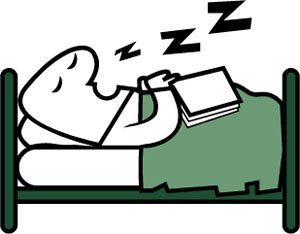
WHAT IS SNORING?
- Snoring is a harsh sound produced by vibration of the soft tissues of the upper airway during sleep.
- It usually occurs during breathing in, but can also occur during breathing out.
- Habitual snoring is common, more common in males than females and increases as we grow older.
- Occasional snoring is almost universal
WHY DO I SNORE?
- Obesity, Pregnancy and Genetic Factors
- Allergies, Congestion and Certain Nasal Structures
- Alcohol, smoking, aging and certain drugs and medications, including muscle relaxants.
WHAT IS THE DIFFERENCE BETWEEEN SNORING AND OBSTRUCTIVE SLEEP APNEA (OSA)
- Snoring can be a symptom of obstructive sleep apnea (OSA) but not everyone who snores has the sleep disorder.
- Obstructive sleep apnea is a serious sleep disorder that causes you to temporarily stop breathing when you are asleep.
WHAT ARE THE SYMPTOMS OF OBSTRUCTIVE SLEEP APNEA?
- The main symptoms of sleep apnea are:
- loud snoring,
- tiredness, and
- daytime sleepiness.
WHAT ARE THE SYMPTOMS OF SLEEP APNEA (2)?
- Other symptoms can include:
- Restless sleep
- Waking up choking or gasping
- Morning headaches, dry mouth, or sore throat
- Waking up often to urinate
- Waking up feeling un-rested or groggy
- Trouble thinking clearly or remembering things
ARE THERE TESTS FOR SNORING?
- The ENT doctor might recommend any other following:
- Sleep endoscopy (passing camera down your throat),
- Imaging like Xray or MRI
- Home sleep apnea test (HSAT).
WHAT ARE THE TREATMENT OPTIONS FOR SNORING?
- Conservative measures
- Weight loss-if your BMI is above 30 or collar size is above size 17 in men and 16 in women, loss of weight coupled with an exercise regime will
- Tobacco and alcohol-these can cause your tongue and throat muscles to relax; avoid tobacco or alcohol for at least 4 hours before bed.
- Sleep position-risk of snoring is higher when you sleep on your back rather than your side
- Nasal patency
- Nasal decongestants-the nose is the narrowest part of the airways. Nasal congestion can impair airflow through the nose. We suggest that individuals who snore only during a common cold receive a trial of decongestant therapy before bedtime during colds
- Intranasal steroids-nasal congestion from allergic rhinitis (nasal allergies) or chronic sinusitis may improve on intranasal steroids.
- Mechanical approaches
- CPAP- CPAP therapy keeps your airway open during the night by gently providing a constant stream of air through a mask you wear while you sleep.
- Surgical options
- UPPP-This is the most common surgery to reduce or eliminate the bulky tissue in your throat.
- Dental surgery-this aim at adjusting the bony structures.
- Nasal surgery-correction of a deviated nasal septum, enlarged nasal turbinates or nasal polyps improve airflow through the nose.

